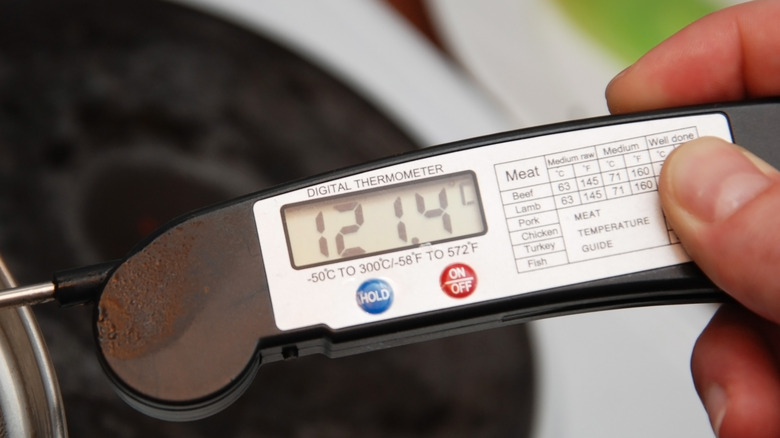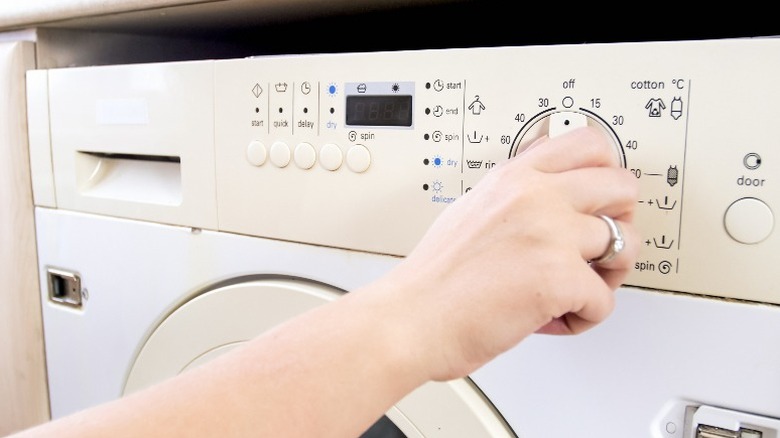The Genius Way You Could Be Using A Cooking Thermometer For Ultra-Clean Clothes
Since the advent of washing machines, finding the best way to launder clothes has been a common concern. People aim to achieve a balance between thorough cleaning and preserving the integrity of the fabric. But a critical aspect to consider in this process is the water temperature used during washing, and it becomes even more crucial during seasonal changes that affect the tap water temperature or when using a different water source. For instance, water from a well tends to be colder than standard tap water. In these instances, your water temperature can be too cold, making it ineffective for getting clothes thoroughly clean. That's why a cooking thermometer (that can also measure low temperatures) can make a world of difference.
The temperature of the water is not just a minor detail — it plays a crucial role in the lifespan of your fabrics and significantly impacts the effectiveness of your detergent. Using a cooking thermometer, like a candy thermometer, is ideal to ensure that the water in your washing machine is truly hot, warm, or cold. In laundry terms, water temperatures are categorized as follows: cold water ranges between 60 to 80 degrees Fahrenheit. Warm water is defined as having temperatures from 90 to 110 degrees Fahrenheit. Meanwhile, hot water is considered to be 130 degrees Fahrenheit or above.
How water temperature affects laundry cleaning
Why is it crucial to check the temperature of the water on your washing machine? For one, the lower the water temperature, the more detergent you need for washing to be effective. This is because laundry detergents contain enzymes that break down proteins, fats, oils, carbohydrates, sugars, and starches. They also boost the cleaning power of detergents and help care for fabrics. However, these enzymes won't work when the water falls below 60 degrees Fahrenheit. Similarly, when the water is too hot, enzymes lose their structure, which is crucial for them to break down stains from clothing.
At the same time, using a particular laundry water temperature has its advantages. For instance, cold water is ideal for washing delicate clothing, while hot water is best for heavily soiled and stained clothing. The latter is also great on white clothes but isn't the best temperature for dyed and delicate clothes, as it may cause shrinking and fading. Moreover, washing at this high temperature requires more energy. Meanwhile, washing your laundry with warm water is ideal for most loads.


